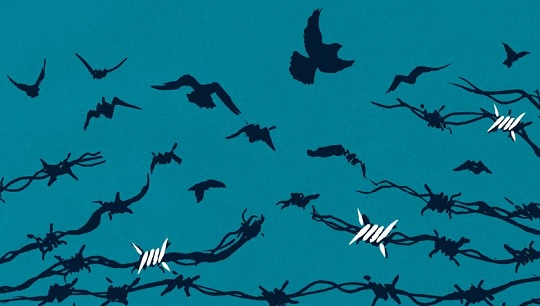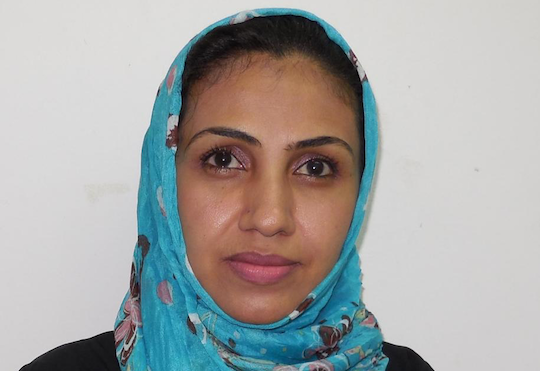Phoneme Media is a nonprofit company that produces books in translation into English and literary films. Based in Los Angeles, the company was founded by Brian Hewes and David Shook in 2013, though it wasn’t until 2015 that the press began publishing on a seasonal calendar. To date, Phoneme Media has put out over twenty titles of fiction and poetry, and is particularly interested in publishing works from languages and places that don’t often appear in English. Many of their books are accompanied by short films that take on different formats, from video poems to book trailers, and have been shot around the world. Asymptote’s Editor-at-Large for Argentina, Sarah Moses, spoke to David Shook over Skype about publishing translations from underrepresented languages and some of the titles he’s excited about.
Sarah Moses (SM): How did Phoneme Media start?
David Shook (DS): It came about basically because of my own work as a poet and translator. In my own travels—when I was working in community-based development, mostly in East Central Africa and Latin America—through relationships, through friendships with writers, in places like Burundi and Equatorial Guinea, and writers working in indigenous languages in southern Mexico, for example, I was just encountering all of these writers that I felt deserved to be read in English, that would contribute something important to our literary dialogue and that couldn’t find homes in terms of publishers here in the United States and in the UK, too, for a couple of reasons. The first being the lack of translators working in those languages and familiar with those regions, and the second was the fact that these books were somewhat outside the purview of even the publishers who specialized in translation—some great publishers. I think of Open Letter, for example, which has largely focused on literature from European languages, which I also think is incredibly important, but something like a book of poetry from Isthmus Zapotec, or the first translation from the Lingala—a novel we’re preparing to publish later this year would definitely be a bit outside their wheel house.
SM: How do you find translators for languages like the ones you’ve mentioned?
DS: Well I think our reputation is such that, despite having been around a comparatively short time, we’re often approached by translators working in more unusual languages. Our translation from the Uyghur, for example, by Jeffrey Yang, and the author is Ahmatjan Osman, who was exiled in Canada, was exactly that situation. Jeffrey brought the translation to us because he knew of our editorial interests. In other cases, like our book of Mongolian poetry, I was alerted to its existence because the translator won a PEN/Heim grant. And I do read widely, both in search of writers and of translators, who I think are important. For example, a place like Asymptote, which I read regularly with an eye toward acquisitions. I mean when we acquired, for example, this novel from the Lingala, the translation was a huge issue because there are very few, if any, literary translators from the Lingala, so I actually auditioned a few Congolese translators before finding this husband-and-wife team, Sara and Bienvenu Sene, who did a really great job. They’re really literary translators, whereas most of the translators I’d auditioned were technical translators or interpreters. And it’s pretty spectacular, considering I think English is their fourth language. I think a big part of my work is scouting out these translators and also encouraging a new generation of translators to go out into the world and find interesting books. I’m very proud that we’ve published many first-time translators on Phoneme Media.
READ MORE…










